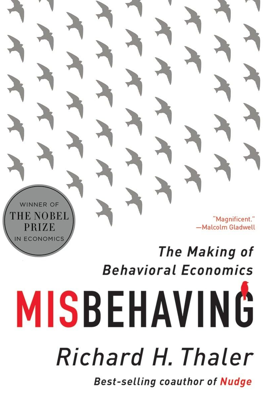Does the Stock Market Overreact?
Exploring Market Overreactions and Value Investing
The collaboration between the author and Werner De Bondt, a Belgian exchange student passionate about finance, led to pivotal research combining psychological theories with financial market analysis. Initially unfamiliar with finance, the author learned alongside De Bondt, focusing on incorporating psychology into financial economics.
Market Overreactions Hypothesis: Inspired by Kahneman and Tversky's research on extreme forecasts from limited information, De Bondt hypothesized about overreactions in the stock market. Specifically, they examined if the stock market overreacts to information, leading to stock price corrections later. This idea is akin to psychological experiments where subjects made disproportionate forecasts based on irrelevant data, such as a sense of humor wrongly predicting academic performance.
Value Investing and Benjamin Graham: The research drew significantly from Benjamin Graham's value investing principles, which emphasizes buying undervalued stocks with low price-to-earnings (P/E) ratios. Graham's strategy suggested that the market sometimes misprices stocks based on transient market sentiment, leading undervalued (or 'cheap') stocks to eventually outperform overvalued ones as prices correct themselves.
Study Design and Findings: De Bondt and the author tested the overreaction hypothesis by evaluating stock performances over different periods. They categorized stocks into 'Winners' and 'Losers' based on past performances and compared their future returns. Contrary to the Efficient Market Hypothesis, which posits that past performance should not predict future outcomes, their study found that stocks labeled as 'Losers' outperformed 'Winners', suggesting an overreaction by the market that corrected over time.
Impact and Publication: The study faced potential skepticism due to its contradiction of the prevailing Efficient Market Hypothesis. However, a fortunate opportunity to present at the American Finance Association meeting, and subsequent swift publication in the Journal of Finance, allowed these groundbreaking ideas to gain significant attention. The publication was facilitated by both the session organizer Hersh Shefrin and the unconventional decision by Fischer Black, president of the Association, who approved the rapid dissemination of their findings.
This research underscored the incorporation of behavioral insights into economic theories, particularly financial markets, illustrating how psychological factors like overconfidence and stereotyping at the corporate level can lead to significant market anomalies. These findings not only supported the practical strategies of value investing but also demonstrated the complex interplay between human behavior and market dynamics, challenging the sufficiency of models based solely on rational, fully-informed agents.
